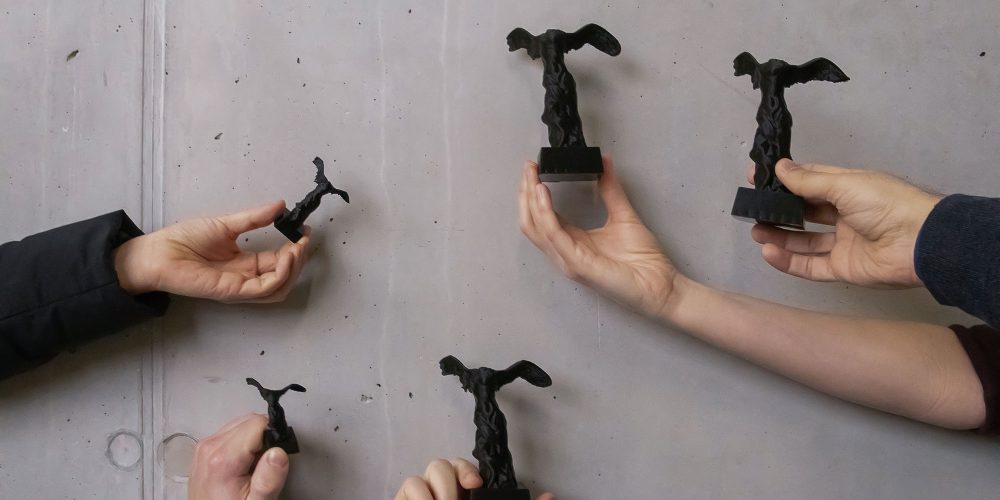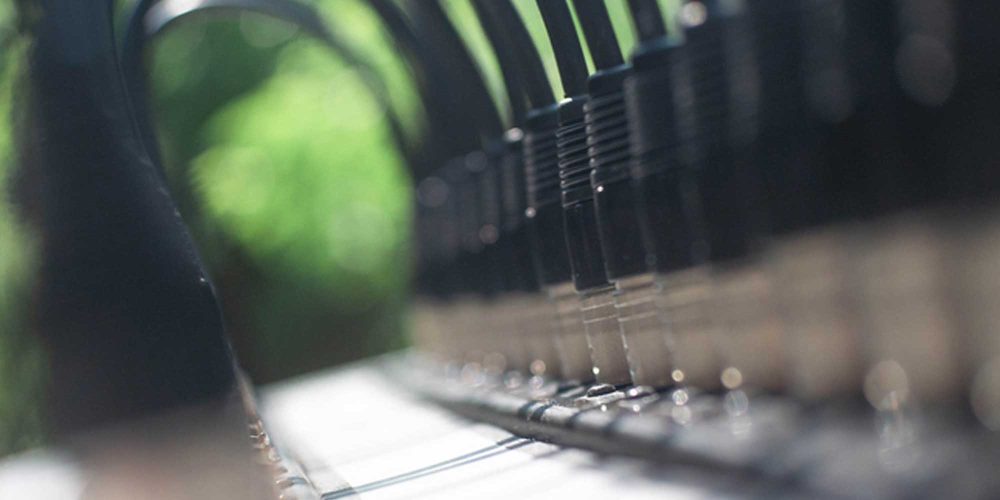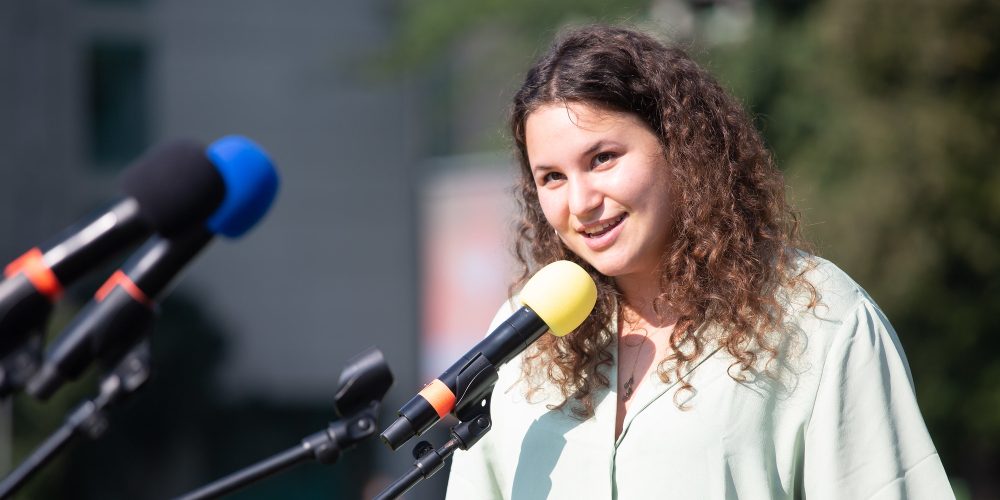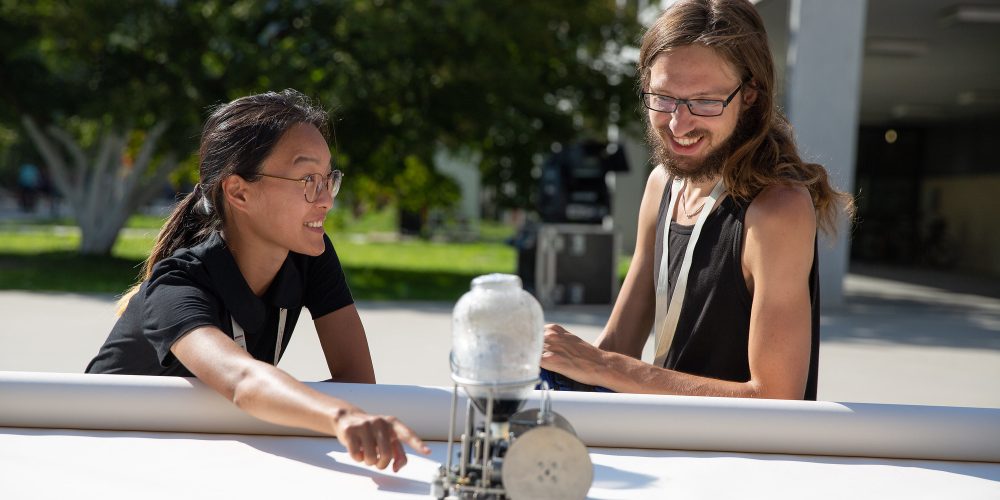
Cooperation & Innovation
-
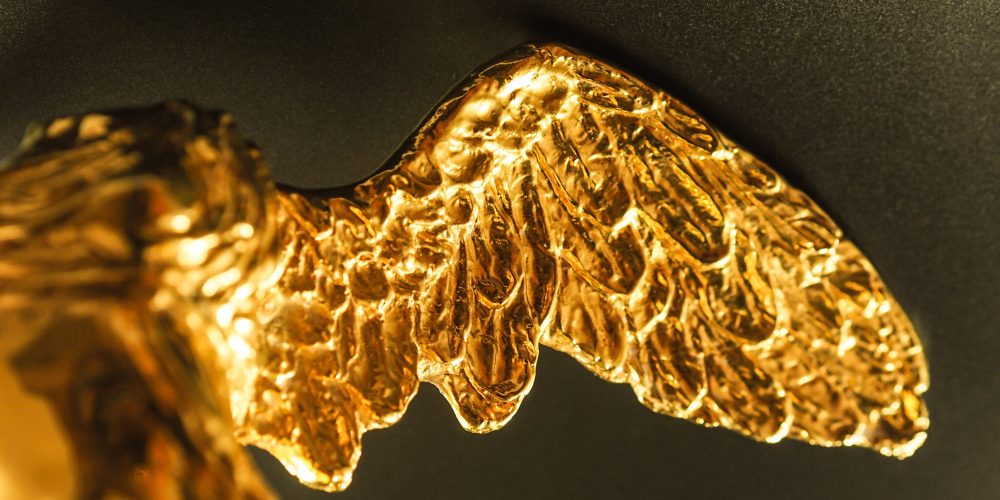
Prix Ars Electronica 2022: Here we go again!
The Prix Ars Electronica kicks off the New Year! For the 35th time in a row, the world’s most traditional media art competition is entering the next round.
-
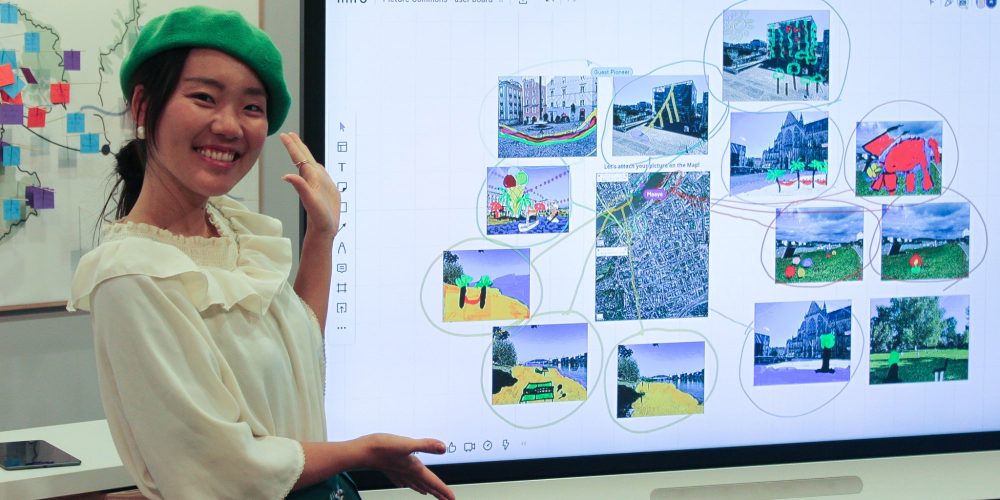
How to manage an organization like Ars Electronica
This is the question posed by participants in a new training program for cultural producers that provides insights into the way Ars Electronica works.
-
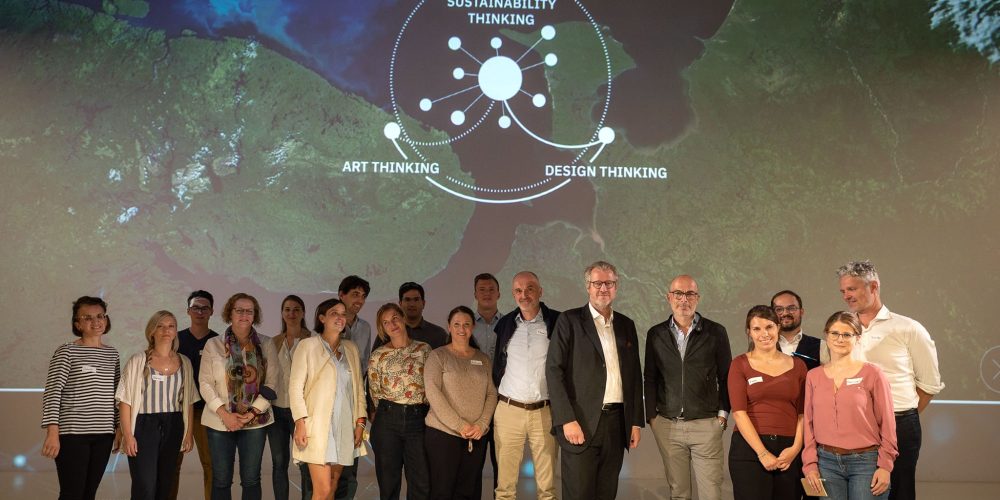
“Sustainability begins with the mind”
A new workshop format encourages people to question their own thinking about sustainability and thus initiate change. Let’s take a closer look!
-
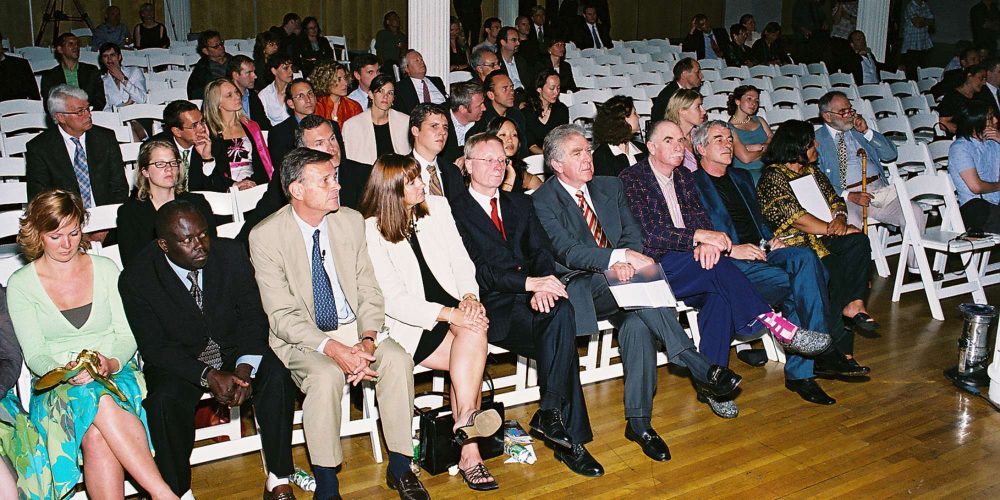
Throwback: Ars Electronica goes international
On the occasion of its 25th anniversary in 2004, the time seemed ripe for Ars Electronica to finally go global.
-
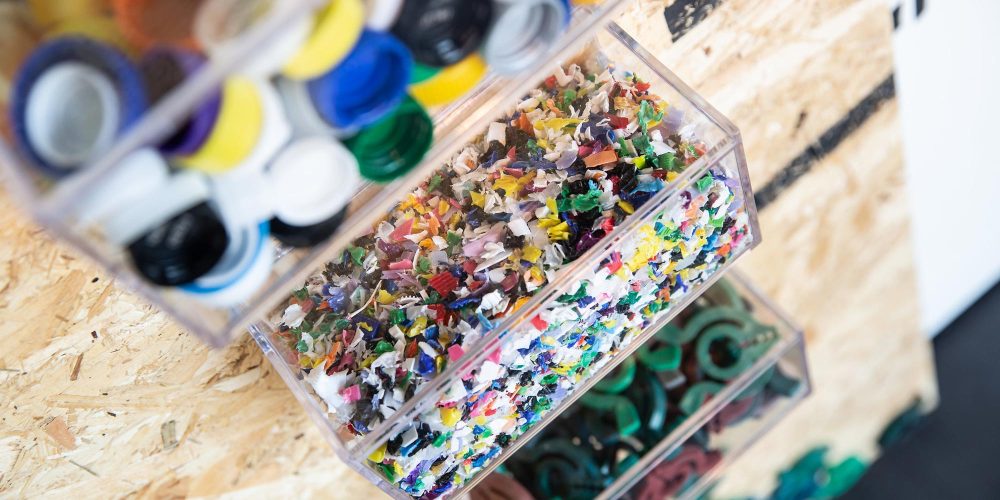
Circular economy instead of throwaway society
To counteract climate change, plastics must be handled differently. Design, life cycle, recycling on the one hand, industry, society and politics on the other hand are needed for this.
-
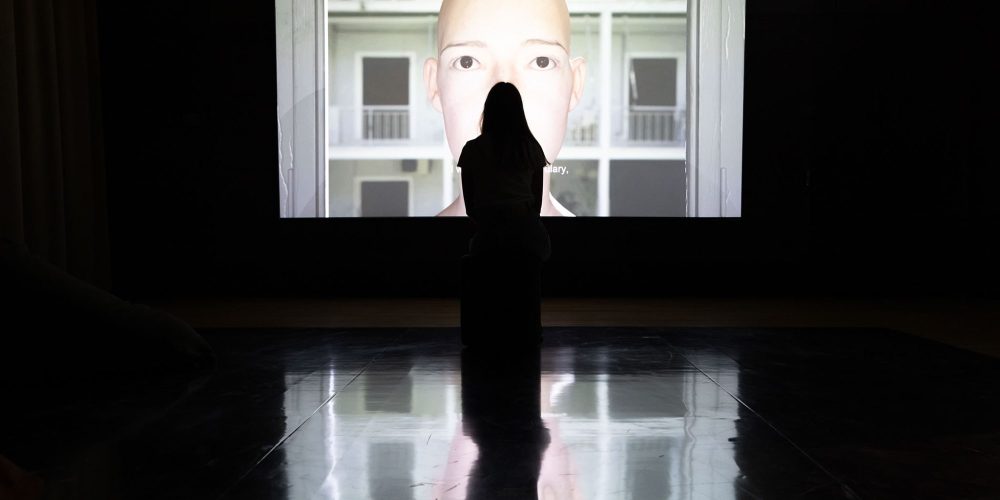
It’s a wrap! This was the first ArtScience Residency enabled by Art Collection Deutsche Telekom
AI, bias, listening infrastructures and art: Laura Welzenbach, Head of Ars Electronica Export, is looking back at the first year of the ArtScience Residency enabled by Art Collection Deutsche Telekom.
-
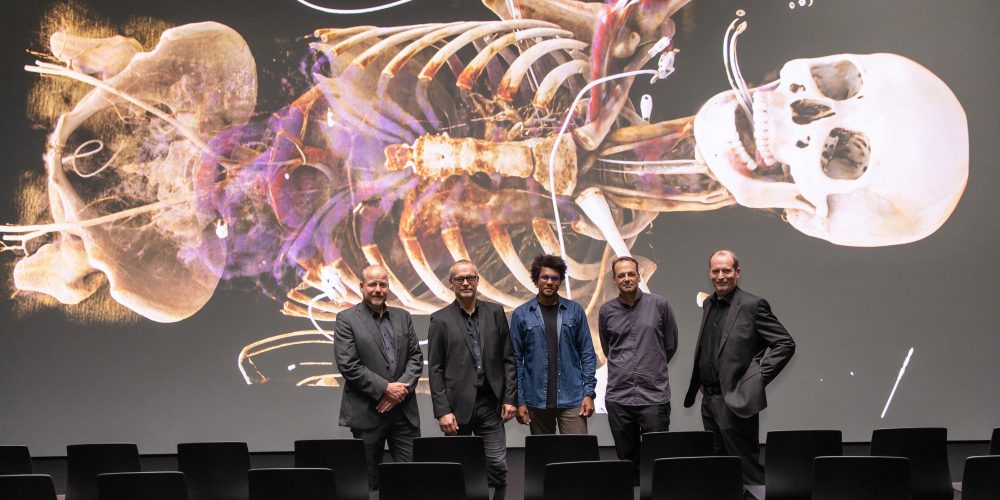
The Future of Medical Studies, Today
What the medical studies of the future look like? Find out with “Virtual Anatomy” at the new JKU medSPACE, developed by the Ars Electronica Futurelab: high-resolution anatomy in 3D, where you can zoom and rotate down to the smallest blood vessel.
-
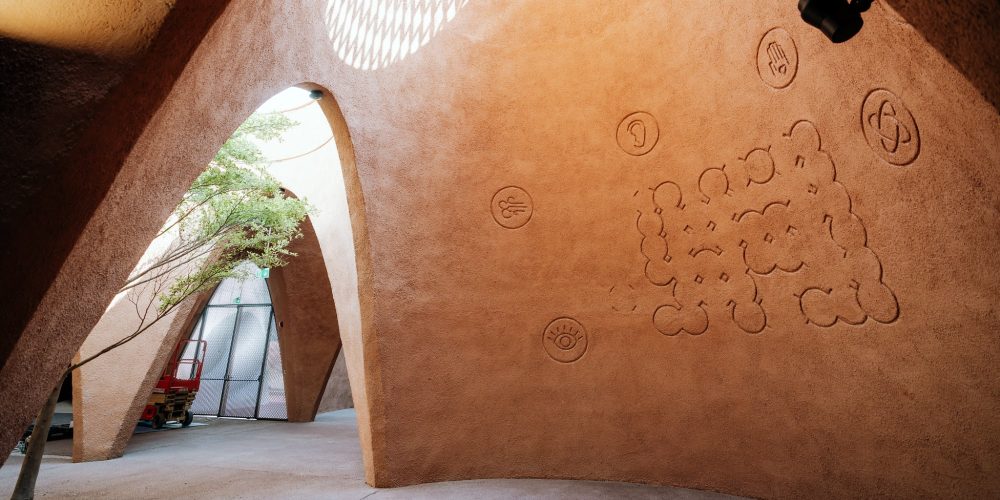
EXPO 2020: Dialog with the future
After a year of Corona-related postponement, EXPO 2020 is finally getting underway. The Ars Electronica Solutions team is playing a key role in the Austria Pavilion.
-

Art Thinking
There are difficult questions waiting for creative answers
-

STARTS Prize 2021: New products from food scraps
720 tons of food are thrown away in a single day in Catalonia. It is figures like these that have prompted Anastasia Pistofidou, Marion Real and The Remixers of Fab Lab Barcelona, IaaC, to take action.
-
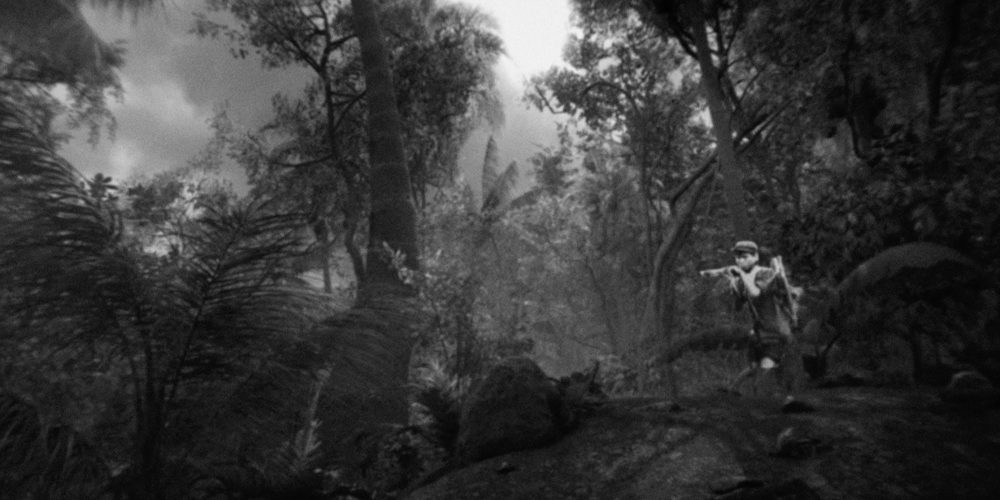
Prix 2021: “When the Sea sends Forth a Forest” Animation-Film remembers mass murder
There are hardly any pictures from that time. It has been over 40 years since Khmer Rouge supporters in Cambodia tried with full force to impose their ideology in the country, wiping out the lives of millions of people.
-
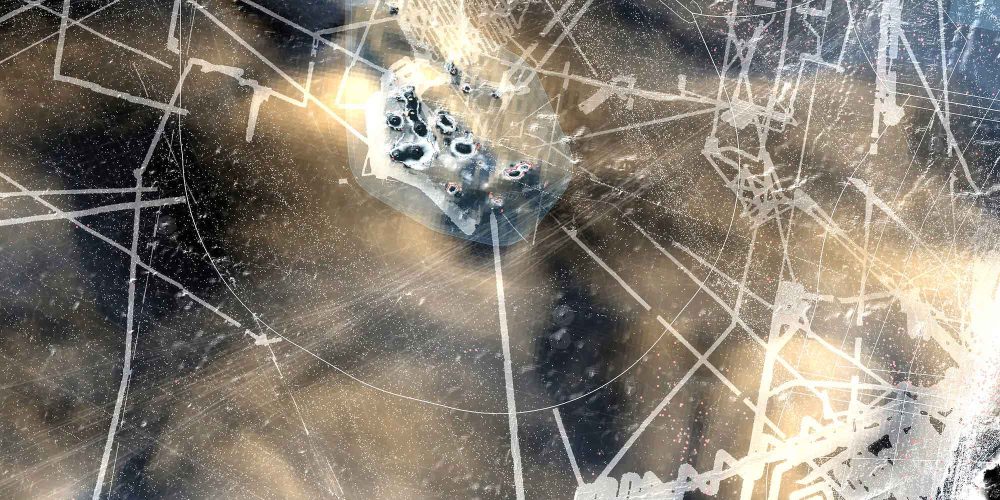
STARTS Prize 2021: The condition of the oceans and how high the stakes are
The world’s oceans not only reflect light, they also reflect the effects of the Anthropocene, the age of humankind.
-
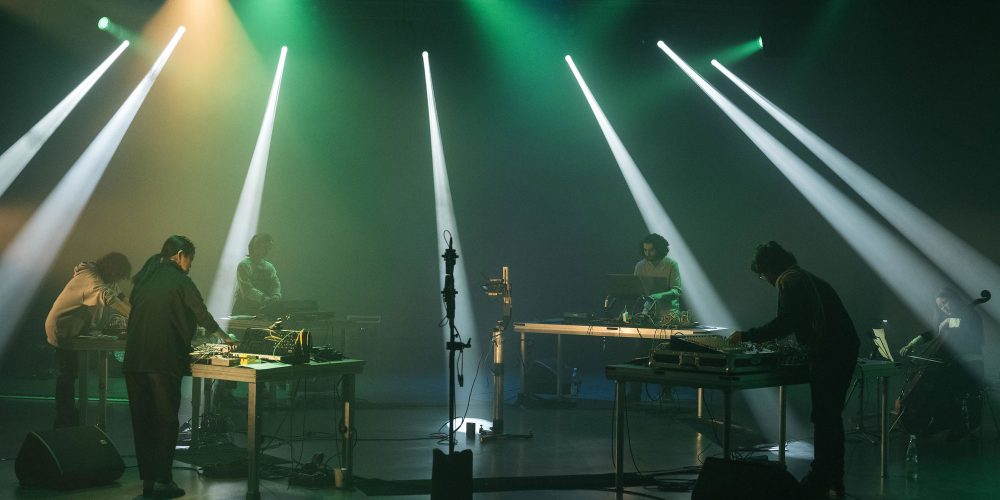
Prix 2021: Exploring and composing music worldwide
Exploring new sounds – with great joy in experimentation and a healthy dose of passion.
-

Prix Ars Electronica: What were the trends in 2021?
Since its foundation in 1987, the Prix Ars Electronica has always served as a trend barometer and platform for the collection of current and future visions of artists on the theme of “Art, Technology and Society”.
-
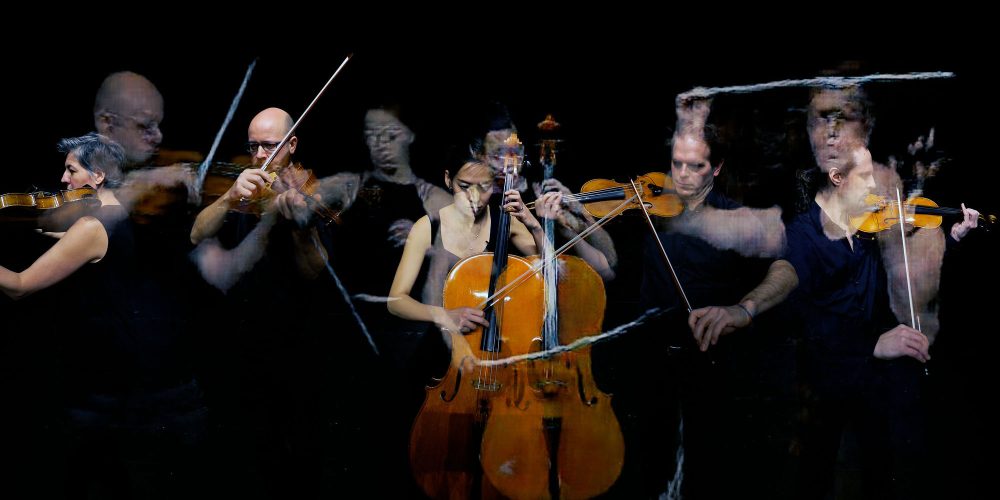
Prix 2021: Musicians face the new reality
The reality as we experience it around us, we create ourselves. It is constructed and at the same time changeable and unstable.
-
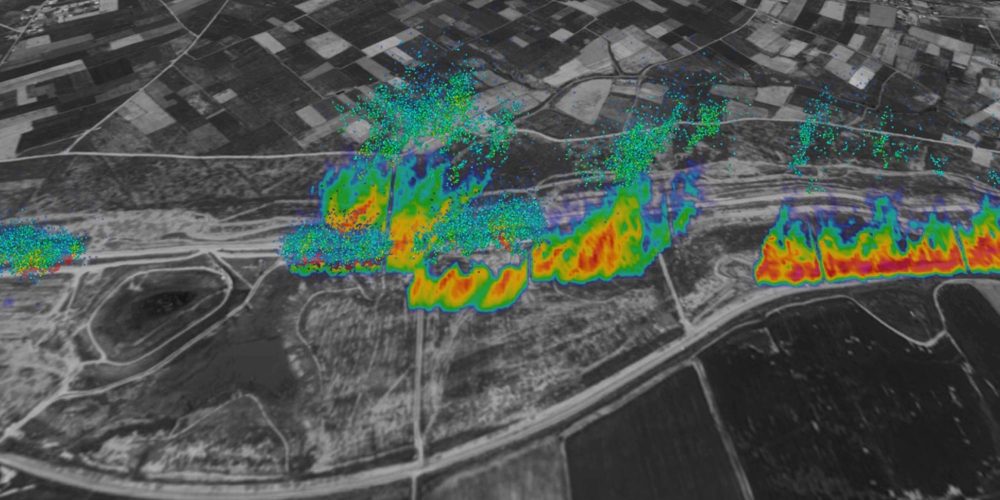
Prix 2021: “Cloud Studies” – When clouds tell stories
Clouds have been telling us all kinds of stories for ages. With the project “Cloud Studies”, the collective “Forensic Architecture” once again looks up to the sky and uses technological tools to re-read clouds of smoke, poison and gas.
-
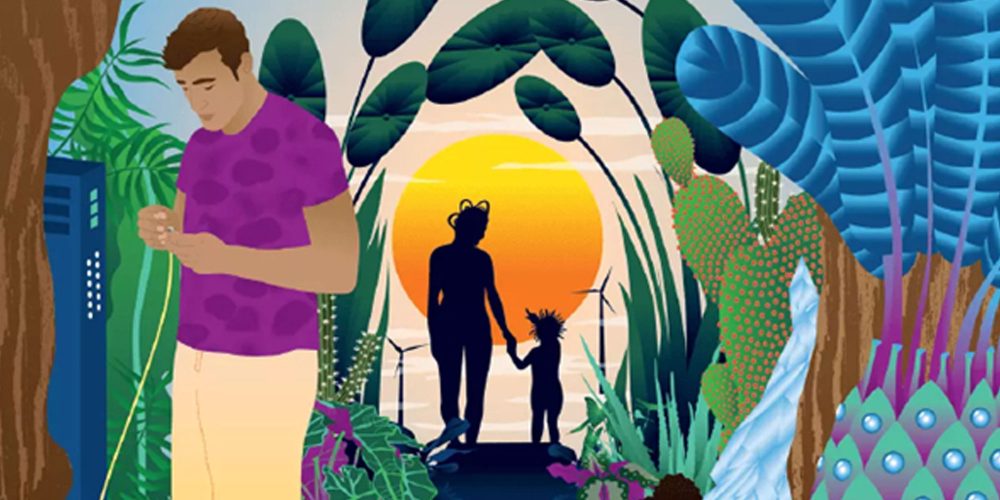
Prix 2021: Sustainable and fairer Internet for everybody
Can artificial intelligence help us become more environmentally sustainable? How can we reduce the growing energy requirements of cryptocurrencies? And how can we free the IT sector from fossil fuels?
-
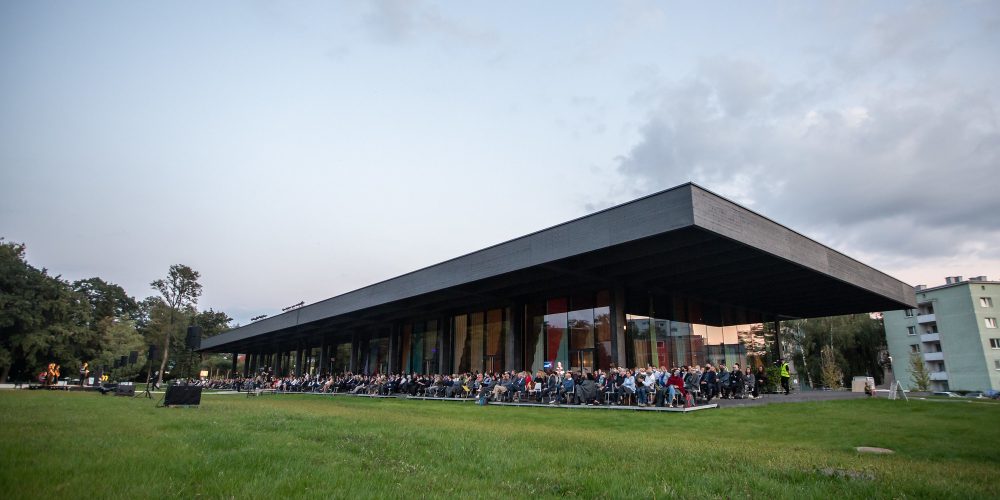
Community Project: Symphony of Absence
A “Symphony of Absence” in the Keplerhall is meant to remind of all those celebrating their own festivals outside of Linz.
-

Digital Humanism: Teaching and learning through an artistic lens
Education is one of the core aspects of the European Platform for Digital Humanism, which is only natural, as historically education has always been fundamental to what we understand humanism to be.
-
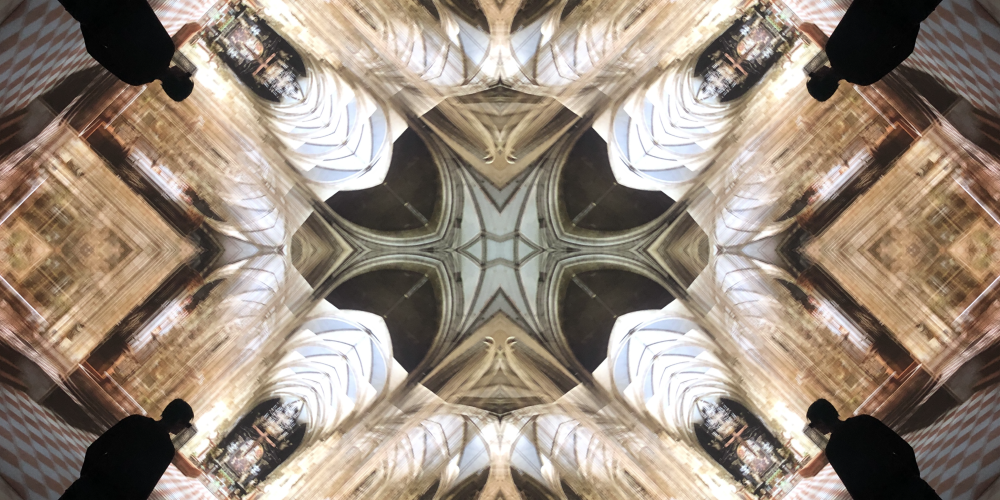
Virtual Worlds
Innovative concepts for hybrid environments
-
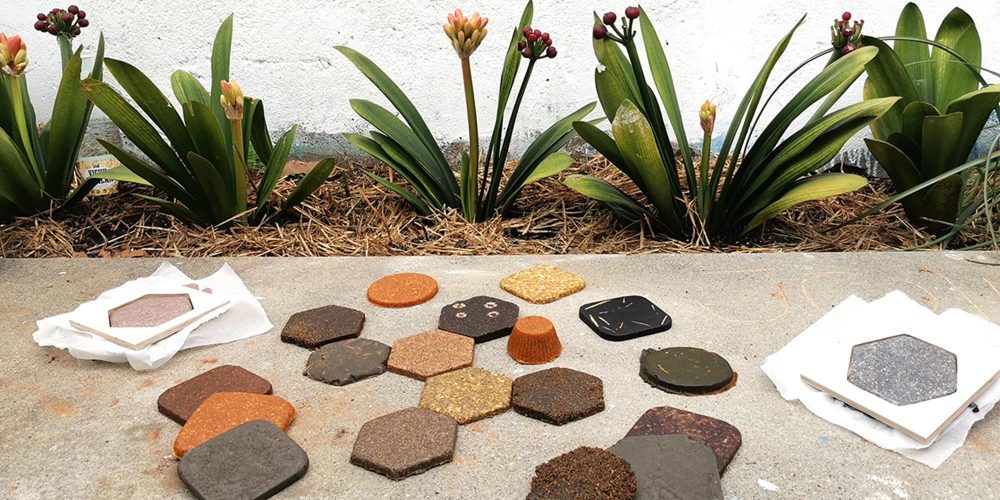
Digital Humanism: Art as driver for human-centred innovation
Digital technology spills into and shapes all aspects of our lives, from the way we inhabit both digital and physical spaces, the ways in which we interact and communicate with others, to the ways we work and plan our lives.
-
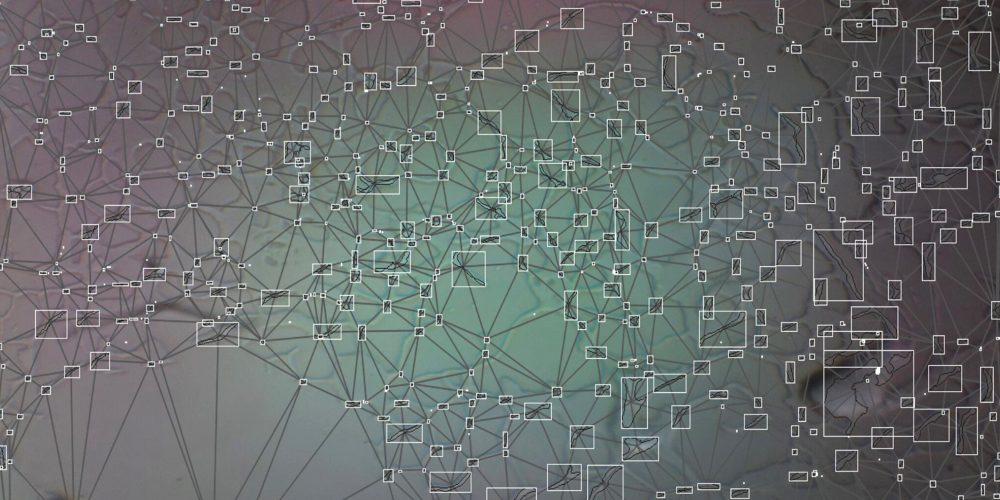
Artificial intelligence as a meta-researcher
An international collective experimenting between art and science. A multidisciplinary educational organization to explore the origin and nature of life in the universe and the evolution of intelligence. The beginning of a wonderful friendship.
-
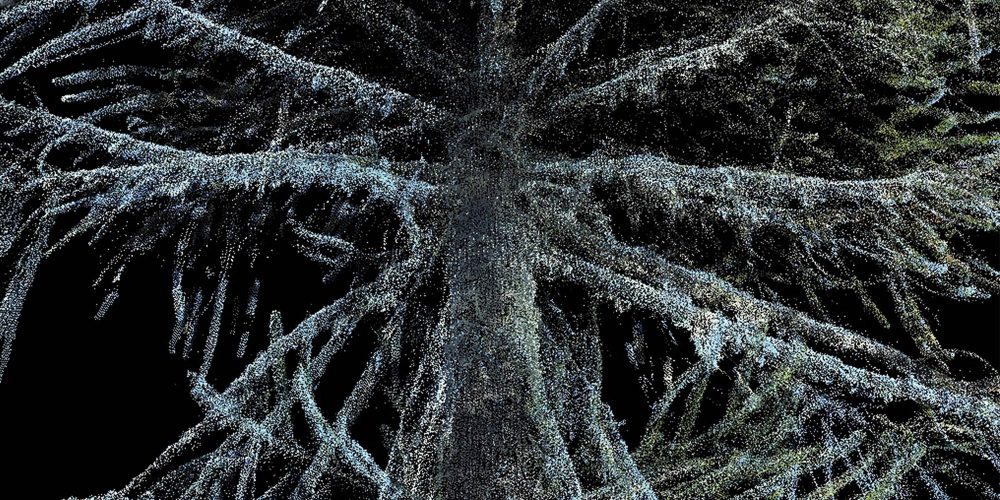
“The wheel is spinning again!”
A New Digital Deal – 2021 kicks off the beginning of the doing. A first preview of the Ars Electronica Festival.
-
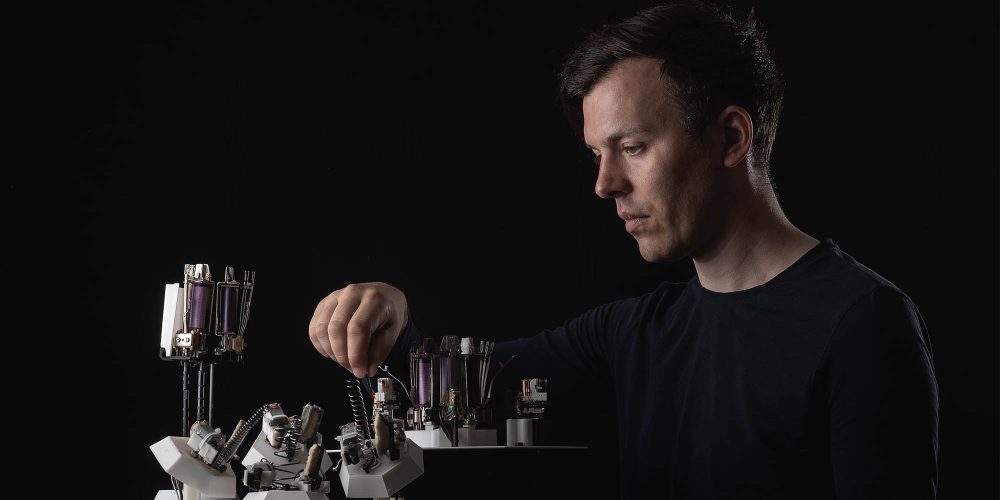
He lets mini-robots make music
An interview with this year’s EMAP Residency Artist: Moritz Simon Geist!
